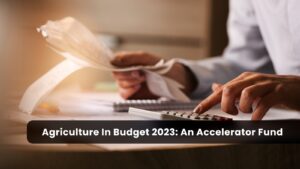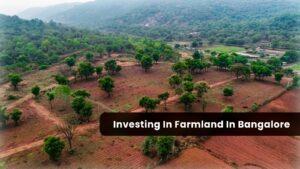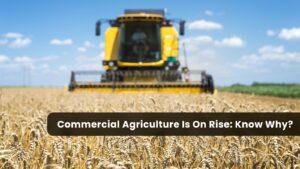A wise investment is one in which you keep track of shifting growth areas, seize the chance, and invest right away. But much like the seasons, investment opportunities shift, making it extremely challenging to withdraw money from one investment and maintain investing it in another. But if there is one industry in this unstable atmosphere where you can be confident that your income is secure, it is agriculture. Given that everyone needs food to survive, the agriculture business is the only one in the investment sector graph that has never experienced a decline.
Given that crop development is so erratic due to variable rains, you might wonder how this business creates a steady atmosphere to invest our money. And you are undoubtedly correct. Although the likelihood of rain cannot be predicted, adopting sustainable practices would undoubtedly ensure agricultural output by preserving soil fertility.
What Is Sustainable Agriculture?
Sustainable agriculture is an integrated system of livestock and plant production techniques that cooperate to improve environmental quality and natural resources, satiate human hunger, make the best use of non-renewable resources to maintain the economic viability of farm operations, and improve the standard of living of farmers.
Sustainable Agricultural Practices
- Cultivation of cover crops to keep the land productive for a long time. Many environmental and health-related issues are resolved by it.
- Reducing soil erosion and carbon footprint is made possible by linking livestock and agricultural cultivation. It increases the fertility of the soil.
- The incorporation of biological and ecological processes into agricultural and food production methods, such as nitrogen fixation, soil regeneration, and nutrient cycling.
- Implementation crop rotation and polyculture strategies by farmers to significantly minimize the opportunity for diseases and pests to spread.
How Sustainable Agricultural Practices Linked to Higher ROI
Longer Land Validity
Without investing heavily in technology or chemical fertilizers, farmers that practice sustainable farming methods like polyculture, crop rotation, and the use of organic manure like cow dung naturally increase the fertility of the soil. In exchange, these methods aid in boosting soil production.
Therefore, it is important to remember that crop quality improves as soil productivity does. Therefore, the crops’ worth increases when they are sold in the market. As a result, organic farming increases the economic value of the crops and the longevity of the land.
These methods aid in water conservation, reduce chemical use and fertilizer runoff, and allow landowners to get the most out of their acreage for an extended period of time.
Increased Profit Margins
Investors can be concerned that any long-term profits would be overshadowed by the short-term expenses of adopting sustainable practices. However, some research indicates that sustainable agriculture has higher profit margins than traditional crops, perhaps in part because farmers can charge higher prices for organic and sustainably grown produce as well as because practices like regenerative and/or no-till agriculture have the potential to produce greater returns.
Instead of relying solely on monoculture, farmers can diversify their sources of income by cultivating a variety of crops or by combining row crops and livestock. By substituting natural fertilizers for harmful ones, this not only increases ROI and risk tolerance but may also help save money and have a smaller negative impact on the environment.
Improved Soil And Lands
Investments in sustainable agriculture can enhance the land over the long run and lower the dangers associated with traditional agricultural methods. This includes adverse effects on local species and water supplies, as well as adverse effects on humans who live or work on the land as a result of harmful pesticides or fertilizers. Therefore, using sustainable farming techniques boosts long-term profitability as well as the endurance of soil and water resources.
Conclusion
Although the concept of sustainability may seem idealistic, it is actually eminently practical in the context of farming. The ecological viability of the environment in which we grow food determines our capacity to do so. We won’t be able to continue farming indefinitely if we destroy and deplete farmland, which will further have an impact on our economy.
We hope the reasons we listed above have convinced you to switch to sustainable economic practices so you can continue to accumulate money.
We at Mogg’s Estates are particular about practicing sustainable farming to preserve the durability of the land and to create healthy plantations in light of the advantages of sustainable farming to the economic and social spheres. Visit our website www.moggs.in to learn more about sustainable farming practices.



